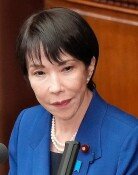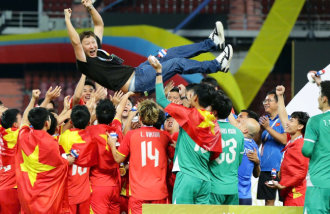Buying the same horse three times
Buying the same horse three times
Posted March. 02, 2012 01:23,
North Korea has promised to curb its nuclear program in return for large food aid from the U.S. The pledge can provide a good opportunity to discuss the North`s nuclear program again. The six-party talks on Pyongyang`s nuclear development has been halted since December 2008. The pledge of North Koreas new young leader Kim Jong Un to stop nuclear and long-range missile tests and uranium enrichment came two months after he gained power, showing a silver lining of hope. South Korea, however, must remain alert until North Korea implements the agreement. Pyongyang has repeatedly broken its promises, including the 1994 Agreed Framework with Washington and the 2005 Joint Statement with Seoul and declared itself a nuclear state.
The U.S. seems cautious of North Korea as well. A high-ranking official who attended the North Korea-U.S. talks said, Since this agreement is revocable, North Korea can go in the other direction. U.S. Secretary of State Hillary Clinton said, Its a modest first step. While Washington sees the decision a moratorium, Pyongyang calls it a suspension, implying that unless talks between the U.S. and North Korea progress as expected, Pyongyang will resume its nuclear program. Keener interest in U.S. food aid than curbing nuclear activities reflects the Norths real intention.
Pyongyang is focusing on the centennial birthday of North Korea founder Kim Il Sung on April 15. Kim Jong Un will use this opportunity to lay the foundation for his power by glorifying his grandfather and his father Kim Jong Il. He could declare the goal of achieving a strong nation and give U.S. aid to his people as presents. North Korea tends to have nuclear talks with the U.S. every time a change of power occurs in Washington. Three months after Kim Il Sungs death in 1994, Kim Jong Il reached the Agreed Framework with the U.S. Pyongyang received heavy oil and food aid, but continued its nuclear development. Kim Jong Il used the agreement as a tool to stabilize his country, and his successor is likely to follow in his fathers footsteps.
If Washington fails to recognize Pyongyangs real intention, getting rid of North Koreas nuclear program will get tougher. The North has refused talks with the South. If Washington ignores inter-Korean relations and focuses on dialogue with Pyongyang, then it will only help Pyongyang`s tactic in which it talks to Washington while containing Seoul. Ri Yong Ho, North Koreas chief nuclear negotiator, will visit New York next week. As bilateral dialogue progresses, Pyongyang will show less interest in talks with Seoul. Therefore, the U.S. should closely work with South Korea while it talks with North Korea and refrain from reaching an agreement that hinders the improvement of inter-Korean talks.
Implementation of the North Korea-U.S. agreement has a long road ahead. International nuclear inspectors should return to North Korea and all nuclear activities in the North`s Yongbyon plant must be halted. Pyongyang falsely promised to abandon its nuclear program in the 1994 and 2005 agreements and merely came away with large benefits. U.S. President Barack Obama said he will not buy the same North Korean horse. If Washington is deceived by Pyongyang, which conducted its second nuclear test and enriched uranium, the nuclear issue will enter a river of no return.



![[단독]‘한학자 특별보고’에 “임종성 협조로 국토부 불허하던 사안 승인”](https://dimg.donga.com/c/138/175/90/1/wps/NEWS/IMAGE/2025/12/22/133011466.1.jpg)
![넘치는 전재수 과거 사진들…유죄의 증거일까, 무죄의 증거일까[청계천 옆 사진관]](https://dimg.donga.com/c/138/175/90/1/wps/NEWS/IMAGE/2025/12/20/132997378.1.jpg)

![“아무리 씻어도 안 빠져” 김치통 냄새, □□으로 싹 [알쓸톡]](https://dimg.donga.com/c/138/175/90/1/wps/NEWS/IMAGE/2025/12/18/132993861.3.jpg)
